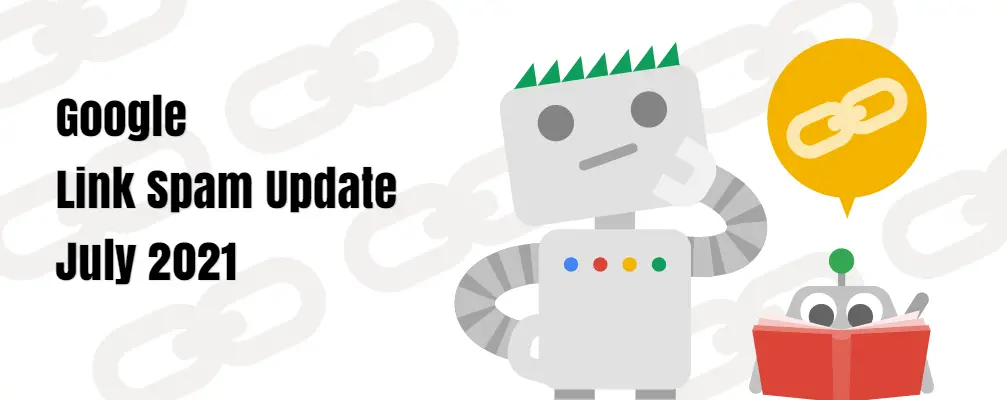Google updates are extremely uncertain. You never know when Google is going to roll out the next algorithm update that may change a lot of things for your website. One such latest update that has made quite the impact is the Google link spam update. This update primarily focuses on identifying and nullifying link spams for search results across multiple languages. This update will reassess those links that are commercial in nature and responsible for link spamming.
Google’s intention here is to observe the sites that are building spammy links and manipulating ranking. However, Google’s link spam update does not penalize using guest posts, affiliates, and sponsored links, instead, they are trying to decrease the levels of spam content. Google specifically says that they won’t penalize sites with this algorithm update, but nullify the impact of links. In this article, we will dive deeper into the topic and help you understand all the aspects of the update.
What is Google’s latest Algorithm update 2021?
Link building is a fundamental practice in SEO to get better visibility on the Search Engine Results Page (SERP). However, some website owners use black hat SEO techniques like spammy backlinks to boost organic traffic. This new Google algorithm update works at nullifying these spammy links to boost the ranking of your page. Google instead of penalizing the website will ignore and not evaluate these links anymore. Link schemes that violate Google guidelines include; buying backlinks, generating links through bots, mutual link exchange between sites, and targeted guest blogging. If your websites don’t abide by Google’s guidelines for link schemes you might see a drastic drop in your website’s rankings.
Which link schemes are unethical?
Links that intend to manipulate PageRank are identified as a part of a link scheme that automatically violates Google’s Webmaster guidelines. They are as follows
- Buying and selling links that pass PageRank
- Excessive link exchanges between two sites
- Partner pages solely for cross-linking.
- Guest Post with keyword anchor text links
- Automated programs to create links to your site.
- Low-quality directory/Bookmark site links
- Hidden links that contain optimized anchor text in PRs or articles
- Links within footers and templates of various sites
However, Google conveys that unique, relevant, and valuable content remains the top priority, and the best way to get high-quality links is to create quality content. The more value you provide to the readers, the higher chances of your digital reach.
Best practices for Google Link Tagging
Affiliate links
Google has no problem with the use of affiliate links to monetize the website, but through this new update, it is important for the websites participating in affiliate programs to qualify affiliate links with rel=sponsored regardless of how these links were created.
Sponsored posts
Paid links, advertisements, or paid placements have generally been seen between articles and blog posts should be marked as rel= “Sponsored”. Google says that sponsored posts are not abandoned, but if its sole purpose is gaining links without providing valuable content to the readers, then avoid participating in it.
Guest posts
Guest posts should be marked with rel=nofollow as per Google. Guest posts mean writing posts for other websites which is a common exchange between site and blog owners that do not involve money. Google does not want guest posts with low-quality content primarily intended to gain links.
Why is it necessary to qualify for ‘Rel attribute values’?
Through the no follow link attribute Google used to handle spam links via blog comments, forums, and message boards. Google noticed that spam links helped low-quality sites to rank higher than high-quality websites. To prevent this unethical hack and improve search results for the users this attribute was introduced. It helps Google learn about the context of the link that helps make search engine rankings better.
How to avoid getting hit by this update?
As Google algorithm updates keep on changing, you can’t be sure that your site won’t get affected. However, it is best to follow ethical practices and adhere to the guidelines of Google.
Don’t stop using affiliate links on your page- You can use affiliate links by adding rel=sponsored attribute so that Google’s systems can properly understand them.
Don’t stop using sponsored links and guest posts- These are also fine as long as they provide unique content and do not solely serve the purpose of link building, but of course one should add the right attributes.
Focus more on content and UX- A website with a good user experience and high-quality content is likely to rank higher. If your site has a poor user experience then you might be affected by the google rankbrain algorithm. So, create content that adds value to the web and readers who come across it. Also, make it easier for the users to navigate your website and make sure to not compromise on the quality
Final Thoughts
These are the important things to know about the new Google algorithm update. Link spam is a global update that impacts both inbound and outbound links. Websites participating in link spam will see a drop in rankings as they are assessed by the new link spam algorithm update. This will encourage ethical practices of link-building and website owners won’t trade links. Now that you are completely familiar with this concept, you know what steps to take next.
Author Bio
Evelyn Grace is an individual blogger and a content marketing professional. She likes to write pieces of high-quality content on digital marketing niches. Also, she’s on a mission to spread out her knowledge to the right audience, who’s eager to learn.

